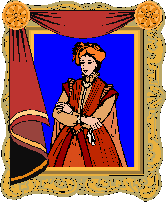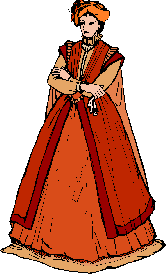|
one of the two most important English poets in the early Victorian age LIFE: 1812-1889 · He was born into a rich family and he spent a happy though uneventful boyhood · Educated at home, he attended only London University for a very short time. · He started very early writing poetry · After a visit in Italy and in Russia (1833) he met his future wife: Elizabeth Barrett (she was already famous as a poet, invalid and six years older than him) · They eloped to Italy where they lived happily until she died. STYLE and THEMES Browning is a very complex writer and his works are characterized by: 1. Optimism (he never spoke openly about social and political problems, he believed in man’s intellectual and moral powers; when he wants to criticize some aspects of the society of his time, he makes use of a "feint" to hide his real self and to speak with someone else's voice. In "My Last Duchess" the speaking voice is the Duke's.) 2. Psychological insight (in his dramatic monologue he tried to analyse the reasons that made his characters successes or failures) 3. Irregularity, obscurity (careless in grammatical constructions, digressions, frequent jumps from one idea to another) 4. Strong sense of musicality and rhythm |

MY LAST DUCHESS
|
FORME: heroic couplets. 10 syllables (impression of speech) SETTING: Ferrara PERIOD: Renaissance (important conception of art) CHARACTERS: the speaker (duke) The person spoken about (duchess) The silent listener · The Duke starts describing the painting on the wall of the gallery of the castle in an indifferent but competent way, he seems completely emotionally involved and he continues describing his death wife’s attitudes with simplicity and clarity. · She is described as a FULL OF LIFE YOUNG GIRL, FRIENDLY; OPEN HEARTED; PASSIONATE; NAIVE; TOO CANDID AND IMPARTIAL IN HER SMILES AND KIDNESS. The duke hates her attitude as he thinks it means she is too FRIVOLOUS, SUPERFICIAL, READY TO BELIEVE EVERYTHING, EASILY IMPRESSED, ALWAYS GLAD AND SMILING. · The duke is POSSESIVE, CRUEL, CYNICAL, READY TO KILL, SELF-CENTERED, AMORAL, EGOIST, ARISTOCRATIC, AVID FOR POWER. He doesn’t bear his wife’s attitude and he has her killed. In this way, he is at last able to have her life in his hands completely. In this dramatic monologue the story is presented from the duke’s point of view, he tries to support the ideas of his wife’s faults .The poems reproduces live speech (HOW SHALL I SAY? Line21, WILL’T line 46,WE’LL line 53). With this monologue Browning wants to underline the human weakness and the failure of humanity. He also wants to suggest a parallelism with the woman's condition in the Victorian Age. By Linda Costi |
